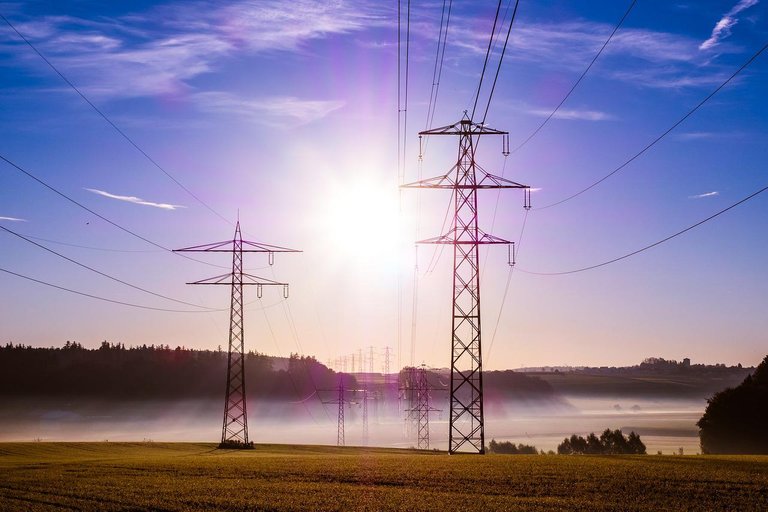
Electricity is an essential utility that is needed by countries to drive and sustain their economies. It is a utility that has a significant effect on all sectors of the economy. It is the premise on which industrialization, science and technology is built. Nigeria like other countries around the world has to produce electricity to facilitate economic activities in her domain.
Nigeria has been unable to meet the electricity demands of households and businesses in the country for several decades consequently leading to slow growth of her economy. The deficit in electricity supply in the country has been a challenge that government has been unable to overcome. The plans and strategies employed by the government have not been effective in resolving the issues in the sector. The electricity needs of the country is placed at 40000Megawatts but the national grid generates over 11000Mw and can only distribute within the range of 4000 - 7000Mw to consumers. An amount that is largely inadequate. This deficit in electricity supply has posed a lot of challenges to Nigerians. The various electricity utility companies set up by government have been unable to find lasting solutions to problems in the sector. Privatization of these electricity utility companies have also failed to bring about the desired results and changes in the sector. In my opinion, I think the government and key stakeholders in the electricity sector do not have strong resolve to surmount the challenges in the sector.

Erratic power supply has adversely affected economic development in the country. Unstable supply of electricity has led to a decline in the progress made in various sectors of the economy in the past. One sector that has been seriously affected by this problem is industry. Industralization has been vital to the economic progress made by most nations around the world. Unfortunately, Nigeria has not been able to sustain industralization. The progress she made decades ago in industries like textiles, automobiles, food and beverages , Media prints, Shoemaking and manufacturing in general have declined significantly over the years with some of these industries becoming moribund. This development has led to a high rate of unemployment in the country: a challenge the government has been been unable to surmount. Entrepreneurs and small scale business owners are also affected by the inadequate supply of electricity in the country. They tend to run their businesses at a high cost and most times make meagre profits from their operations because their products or services are considered expensiveby customers. This most times results in low patronage from customers. Consequently some of these entrepreneurs and small scale business owners either go bankrupt or close their business. Incidents like this deprive Nigerians a means to financial empowerment which in turn is not good for the economy.
Advancement in science and technology has been left to the background in the country because of unstable power supply in the country. Projects conducted by stakeholders in this sector are most times performed outside the country which when looked at critically is not helping us build local capacity in this area. The underdeveloped state of the sector has made a lot of experts and skilled manpower relocate to other countries to continue with their careers and utilize their skills. The migration of these professionals has paved way for an influx of expatriates into the country. A development that would have not happened if electricity was stable in the country.
Agricultural products are also affected by the inadequate supply of electricity in the country. Large amounts of agricultural products get spoilt before they are sold by farmers because of the unavailability of storage facilities like refrigerators. Agricultural produce like tomatoes and pepper get sold to consumers at high prices because most get spoilt before getting to the consumers. The farmers have to sell these products at high prices to consumers to make up for the losses incurred from the spoilt produce. If there were adequate storage facilities around the country these agricultural products would have been preserved and sold to consumers at affordable prices. The major reason why there a few storage facilities to preserve agricultural products in the country is because of the unstable supply of electricity.
The challenges in the electricity sector has to overcome by the Nigerian government. Electricity is a critical tool that would help us on the path to economic development and prosperity. The electricity sector has to be placed as a top priority of government. Other sectors of the economy are dependent on it. The government and stakeholder in the sector need to step up and resolve the challenges confronting the sector. Like the old adage says "Two heads are better than one*. The government can also seek for collaboration and partnership with other countries who have successfully overcome their electricity challenges. Nigeria needs to be on the path of rapid economic growth and stable electricity supply is an essential utility that would make this become a reality.
Thanks for reading,
Have a splendid day folks.
This post has been manually curated by @bhattg from Indiaunited community. Join us on our Discord Server.
Do you know that you can earn a passive income by delegating to @indiaunited. We share 100 % of the curation rewards with the delegators.
Here are some handy links for delegations: 100HP, 250HP, 500HP, 1000HP.
Read our latest announcement post to get more information.
Please contribute to the community by upvoting this comment and posts made by @indiaunited.
Hi @udezee, your post has been upvoted by @bdcommunity courtesy of @rem-steem!
Support us by voting as a Hive Witness and/or by delegating HIVE POWER.
JOIN US ON